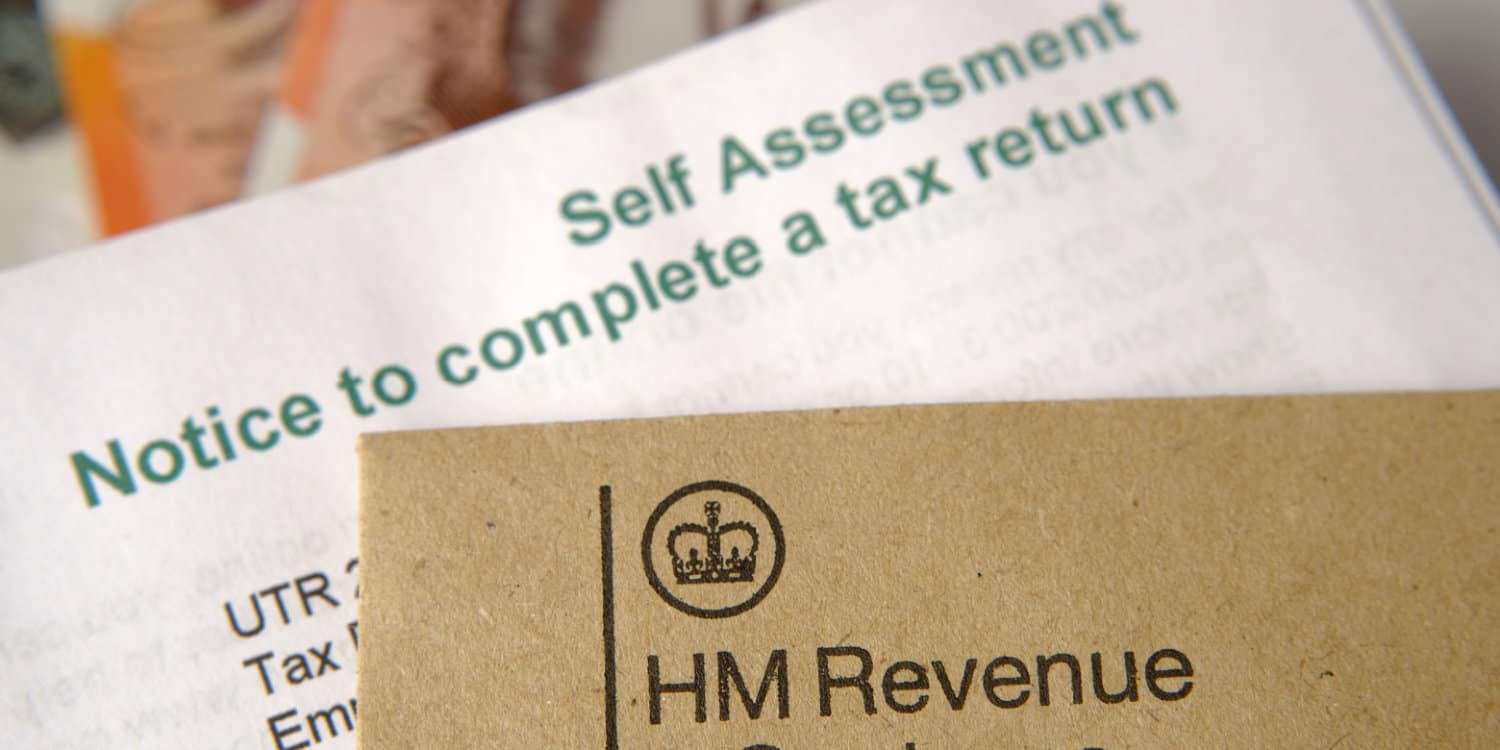Running a successful business relies on preparation, planning, and anticipating what’s around the corner. To help you stay organised throughout 2025, we outline some important dates that may be relevant to you as a UK business owner, including tax and filing deadlines, new tax year measures, changes to company law, and key obligations for limited companies.
Under each date, you’ll find an ‘Add to Calendar’ button, allowing you to add it straight to your Apple or Google calendar.
Key Takeaways
- Many individuals will have a busy start to 2025, with several Self Assessment tasks to complete by 31 January—filing an online tax return, paying tax for the 2023-24 tax year, and making a first ‘payment on account’ for the 2024-25 tax year.
- The start of the 2025-26 tax year brings certain changes, most notably an increase in employer National Insurance from 13.8% to 15%, a reduction in the Secondary Threshold from £9,100 to £5,000 per year, and an increase in the Employment Allowance from £5,000 to £10,500 per year.
- Various changes to UK company law will take effect throughout 2025, including a new identity verification process for company incorporations, directors, and people with significant control.
31 January: Self Assessment deadlines
The end of January is a crucial time for any UK business owners who file through Self Assessment. Whether you’re a sole trader, a partner in a business partnership, or a limited company director and shareholder, make sure you fulfil the following Self Assessment obligations by this deadline (where applicable):
File an online Self Assessment tax return
If you need to complete a Self Assessment tax return for the 2023-24 tax year (6 April 2023 to 5 April 2024), you must deliver it to HMRC online by midnight on 31 January 2025.
HMRC will impose an automatic late filing penalty of £100 if you submit your return after the deadline. Additional penalties will apply if your tax return remains outstanding after 3, 6, and 12 months.
Pay your 2023-24 Self Assessment bill
If you owe any Self Assessment tax for income received in the 2023-24 tax year, you must pay your bill in full by midnight on 31 January 2025. Depending on your income and deductions, your bill may include:
- Income Tax
- Class 4 National Insurance contributions (NICs)
- Voluntary Class 2 NICs
- Tax on dividends
- Capital Gains Tax (CGT)
- Student Loan repayments
However, only a balancing payment will be due by 31 January if you’ve already made ‘payments on account’ in 2024. Most self-employed people make two payments on account (advance payments) towards their next Self Assessment tax bill, then a balancing payment (any remaining amount due) by the 31 January deadline.
Many individuals report and pay Capital Gains Tax through Self Assessment or HMRC’s ‘real time’ CGT service. However, if your capital gain is from a UK residential property, you must report and pay within 60 days of selling the property. You do this online using a ‘Capital Gains Tax on UK property’ account.
First payment on account for the 2024-25 tax year
In addition to paying your Self Assessment bill for the 2023-24 tax year, you’ll need to make your first payment on account for your 2024-25 tax bill by 31 January 2025 unless:
- your previous Self Assessment tax bill (for 2023-24) is less than £1,000 or
- in the 2023-24 tax year, you paid more than 80% of the tax you owed outside of Self Assessment (e.g. through your PAYE tax code or because your bank already deducted interest on your savings)
HMRC will estimate your payments on account based on your previous year’s tax bill. Therefore, your first payment on account will be 50% of your 2023-24 tax bill.
1 February: Changes to Alcohol Duty rates
On 1 February 2025, Alcohol Duty rates on non-draft products will increase in line with the forecast Retail Price Index (RPI) inflation figure of 3.65%. This process is known as ‘uprating’. Non-draught alcohol includes wine, spirits, and bottled or canned beer and cider.
The following changes will also take effect from the same date:
- A 1.7% cut (in cash terms) to Alcohol Duty rates on qualifying draught products, including qualifying beer and cider, wine, other fermented products, and spirits
- An end to the current temporary wine easement
- An increase in the cash discount provided to small producers for non-draught products (Small Producer Relief)
These changes mean that the price of still and sparkling wine will increase by an average of 15p per bottle, while the cost of an average-strength pint will be 1p cheaper.
26 March: Spring Forecast
In line with the Budget Responsibility and National Audit Act 2011, the Office for Budget Responsibility (OBR) must produce two economic and fiscal forecasts each financial year.
The Chancellor of the Exchequer, Rachel Reeves, has confirmed that the Spring Forecast will take place on Wednesday, 26 March 2025. This will provide an update on the UK economy and the government’s progress since the 2024 Autumn Budget.
1 April: National Minimum Wage increases
If you employ staff, you are legally required to pay them at least the National Living or Minimum Wage. The applicable rate depends on the person’s age and whether they are an apprentice.
Per the recommendations of the Low Pay Commission, the following National Living Wage and National Minimum Wage rates take effect from 1 April 2025:
| New hourly rate | Increase (£) | Increase (%) | |
| National Living Wage (for those aged 21 and over) | £12.21 | £0.77 | 6.7% |
| 18-20 year olds | £10.00 | £1.40 | 16.3% |
| 16-17 year olds | £7.55 | £1.15 | 18.0% |
| Apprentice rate | £7.55 | £1.15 | 18.0% |
| Accommodation offset | £10.66 | £0.67 | 6.7% |
gap
5 April: End of the 2024-25 tax year
The current tax year ends on 5 April 2025. If you file through Self Assessment or prepare annual accounts in line with the financial year, 5 April marks the last day of your 2024-25 accounting period.
Author's Tip
Prepare your Self Assessment tax return as soon as possible after the end of the tax year. By doing so, you can budget accordingly and pay your bill in instalments, avoid late filing penalties, and keep your stress levels to a minimum.
This date is also the deadline for registering for HMRC’s payrolling benefits and expenses online service. If you’re an employer, you can tax employees’ benefits and expenses through your payroll and then report to HMRC online rather than using form P11D.
6 April: Start of the 2025-26 tax year
The 2025-26 tax year begins on 6 April 2025 and runs until 5 April 2026.
If you need to file a Self Assessment tax return for the 2024-25 tax year, you can submit it online or by post from 6 April onwards.
Several changes will also take effect from this date, some of which may affect you as a UK business owner or employer.
Changes to employer National Insurance and the Employment Allowance
As announced at the 2024 Autumn Budget, the rate of employer (secondary) Class 1 National Insurance contributions will increase from 13.8% to 15% from 6 April 2025.
Additionally, the Secondary Threshold (the point at which employers start paying NICs on employees’ wages) will decrease from £9,100 per year to £5,000 per year. This measure will be in effect from 6 April 2025 until 5 April 2028.
However, it’s not all bad news. The Employment Allowance will increase from £5,000 to £10,500 per year, and the £100,000 eligibility threshold will be removed. These changes mean that the Employment Allowance will extend to more employers and provide a greater reduction in their NIC liability.
Statutory pay increases
New rates of statutory pay will take effect from 6 April 2025. These changes are as follows:
- Statutory Sick Pay (SSP) will increase from £116.75 to £118.75 per week
- Statutory Maternity, Paternity, Adoption, Shared Parental, and Parental Bereavement Pay will increase from £184.03 to £187.18 per week
- Maternity Allowance will also rise to £187.18 per week
The earnings threshold to qualify for SSP or family payments will increase from £123 to £125 per week. However, the threshold for Maternity Allowance will remain at £30 per week.
Changes to Scottish Income Tax
There are no changes to UK Income Tax or the annual Personal Allowance in 2025. However, as announced at the Scottish Budget on 4 December 2024, some minor inflationary adjustments have been made to Scottish Income Tax thresholds for 2025-26. These are shown in the table below, alongside the 2024-25 thresholds for comparison.
| Tax band | 2024-25 taxable income thresholds | 2025-26 taxable income threshold | Tax rate |
| Starter rate | £12,571 to £14,876 | £12,571 to £15,397 | 19% |
| Basic rate | £14,877 to £26,561 | £15,398 to £27,491 | 20% |
| Intermediate rate | £26,562 to £43,662 | £27,492 to £43,662 | 21% |
| Higher rate | £43,663 to £75,000 | £43,663 to £75,000 | 42% |
| Advanced rate | £75,001 to £125,140 | £75,001 to £125,140 | 45% |
| Top rate | Above £125,140 | Above £125,140 | 48% |
gap
Business Asset Disposal Relief and Investors’ Relief – rate increase
The rate of Capital Gains Tax applying to Business Asset Disposal Relief (previously known as Entrepreneurs’ Relief) and Investors’ Relief will increase from 10% to 14% for disposals of certain business assets or company shares made on or after 6 April 2025. The rate will increase again from 14% to 18% for disposals made on or after 6 April 2026.
1 May: End of the Alcohol Duty Stamps Scheme
Following a review by HMRC, the government announced that the Alcohol Duty Stamps Scheme will end on 1 May 2025. This measure will impact businesses manufacturing or importing high-strength alcoholic spirits, wine, and other fermented products in the UK.
It will also affect businesses currently registered (or required to register) for the scheme and those supplying alcoholic products that carry duty stamps.
31 May: P60 deadline
If you’re an employer, you must provide a P60 to every person who is on your payroll and working for your business on 5 April 2025 (the last day of the 2024-25 tax year). The deadline for issuing them is 31 May 2025, so you only have a short window in which to do so.
A P60 shows an employee’s total pay and deductions for the previous tax year. You can produce them using your payroll software. Alternatively, if you cannot do this or are exempt from filing your payroll online, you can order P60 forms from HMRC.
You’ll also need to issue a P60 to yourself if you’re a company director and pay yourself a director’s salary. However, you don’t need to do this if you’re a sole trader or self-employed partner in a business partnership.
6 July: Report employee expenses and benefits
If you provide any employees (or directors) with taxable expenses and benefits that aren’t taxed through your payroll, you must submit P11D forms to HMRC by 6 July 2025.
You must also file an online P11D(b) form to HMRC by 6 July 2025 to report any Class 1A National Insurance you owe on employee expenses and benefits for the 2024-25 tax year.
22 July: Pay Class 1A National Insurance
The deadline for paying Class 1A National Insurance on employee expenses and benefits for the 2024-25 tax year is 22 July 2025 (or 19 July if you’re paying by cheque).
31 July: Second ‘payment on account’ for Self Assessment
If you’re required to make advance payments through Self Assessment, your second payment on account will be due by midnight on 31 July 2025. This will go towards your 2024-25 tax bill.
5 October: Self Assessment registration deadline
Individuals and partnerships must register for Self Assessment before sending their first tax return to HMRC.
If you need to file a Self Assessment tax return for the 2024-25 tax year, you must register by 5 October 2025. Online registration is the quickest and easiest option, but you can also register by post if required.
Use HMRC’s online tool to check how to register for Self Assessment.
31 October: Deadline for paper Self Assessment tax returns
While approximately 97% of Self Assessment customers file their tax returns online, some send paper returns by post. The deadline for sending a paper Self Assessment tax return for the 2024-25 tax year is midnight on 31 October 2025.
However, if you’re a trustee of a registered pension scheme or a non-resident company, you have until midnight on 31 January 2026 to send a return using a paper form.
31 December: Reporting via ‘real time’ Capital Gains Tax service
If you use HMRC’s ‘real time’ Capital Gains Tax service, the deadline for reporting gains on assets sold during the 2024-25 tax year is 31 December 2025. You must pay any tax you owe by 31 January 2026.
Changes to UK company law in 2025
Following the introduction of the Economic Crime and Corporate Transparency Act 2023 (ECCT Act), several changes to UK company law came into effect in 2024. Further measures from the ECCT Act will be implemented throughout 2025. We outlined these below:
January 2025:
- Individuals can apply to Companies House to suppress home address details from historical documents on the public register where the address has been used as a registered office.
Spring 2025:
- Individuals will be able to apply to Companies House to suppress the following information from historical documents on the public register:
- residential addresses (in most instances) where the details appear elsewhere on the register
- day of birth for documents registered before 10 October 2015 (since this date, only the month and year elements of DOBs have been publicly displayed)
- signatures
- business occupation
- Organisations and sole traders undertaking anti-money laundering (AML) supervised activity in the UK can apply to register as Authorised Corporate Service Providers (ACSPs). Doing so will authorise them to carry out verification services and submit information to Companies House on behalf of clients.
Summer 2025:
- Companies House will allow access on request to certain trust information that it holds on the Register of Overseas Entities (ROE).
Autumn 2025:
- Companies House will introduce a new identity verification process for company formations and appointments of new directors, people with significant control (PSCs), and members of limited liability partnerships (LLPs).
- A 12-month transition phase will begin for existing company directors, PSCs, and LLP members to verify their identity. This new identity verification requirement will be incorporated into the annual confirmation statement filing.
You can keep up to date with the implementation of these changes by signing up to receive emails and newsletters from Companies House.
Important dates for limited companies
UK limited companies have various reporting and filing obligations for Companies House and HMRC. If you’re a company director, the key duties and deadlines to know about are as follows:
Requirements for HMRC
- Register for Corporation Tax with HMRC—no later than 3 months after starting to do business.
- Paying Corporation Tax—no later than 9 months and 1 day after the end of your company’s Corporation Tax accounting period.
- File a Company Tax Return with full annual accounts—deliver to HMRC no later than 12 months after the end of the accounting period.
- Register for VAT with HMRC—when your total taxable turnover exceeds £90,000 (VAT threshold) in any 12-month period, or you expect to exceed the threshold in the next 30 days. Voluntary VAT registration is available when turnover is below the threshold.
- Send a VAT Return—no later than 1 month and 7 days after the end of every 3-month VAT accounting period.
- Pay your VAT bill—no later than 1 month and 7 days after the end of the relevant VAT accounting period.
- Register as an employer—before the first payday but not more than 2 months in advance.
- Complete regular PAYE tasks if your company is registered as an employer.
Requirements for Companies House
- File an annual confirmation statement—at least once every 12 months, no later than 14 days after the first anniversary of incorporation or the date you filed the last statement.
- Prepare and file annual accounts—first accounts due within 21 months of incorporation, then 9 months after the company’s accounting reference date (ARD).
- Report any change of company details—on the next confirmation statement or within a limited timeframe for certain changes.
Understanding and adhering to these important duties and deadlines will ensure your limited company remains legally compliant.
Thanks for reading
We hope you’ve found this post informative and helpful as a UK business owner, company director, or employer. If you have any questions, please comment below.
For more business advice and limited company guidance, explore the Quality Company Formations Blog.
Please note that the information provided in this article is for general informational purposes only and does not constitute legal, tax, or professional advice. While our aim is that the content is accurate and up to date, it should not be relied upon as a substitute for tailored advice from qualified professionals. We strongly recommend that you seek independent legal and tax advice specific to your circumstances before acting on any information contained in this article. We accept no responsibility or liability for any loss or damage that may result from your reliance on the information provided in this article. Use of the information contained in this article is entirely at your own risk.













Join The Discussion
Comments (4)
What a nice feature adding value to customers
Thank you for your kind comment!
We are very pleased that you found value in our recent blog article.
Kind regards,
The QCF team.
Thanks for the article! I will keep these dates in mind for my own small business accounting UK.
Thank you for your comment, David.
We are so pleased you enjoyed the article.
Kind regards,
The QCF Team